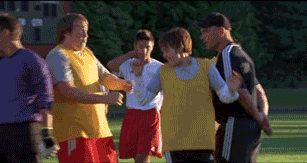Soccer FAQs

Why are men’s soccer players so dramatic when they get injured?
They truly are a bunch of drama kings aren’t they?! The main reason they get so dramatic is that they want to “draw a call” from the referee. The idea is that if they act dramatic, then maybe the ref will call a foul to give them possession and/or give their opponent a yellow or red card. Sometimes they fake an injury too if they need to slow the game down and have a lil’ break. So we guess drama = strategy? Although, as fans, it can be annoying to watch.
Why is soccer so much more popular in other countries (across Europe, South America) versus North America?
Soccer has been around for centuries. Some researchers have even traced soccer back to ancient China, Greece and Rome. But, it was England that really took soccer to the next level and transformed it into the game we know and love today. Because of its overseas roots, the game’s popularity of course grew the fastest over there. Soccer is the fastest growing game around the world for both genders. It’s also the cheapest game to play. Get a ball, use whatever you have lying around to create a goal and you’re good to go.
Is there any strategy behind corner kicks?
Oh yes. There’s strategy behind all “set plays” in soccer. A set play can occur anytime the ball is stopped, including a throw in. With corner kicks, there are copious amounts of strategies. Sometimes teams try to curve the ball away from the net, some curve the ball in toward the net and some aim for the short pass. When a player is crossing the ball from a corner kick, they’re generally aiming for the ball to end up between the six and 18 yard box and to have the ball in the air so that their player can head the ball in, but also far enough away from the goalie that they can’t catch it.
What is this whole “extra time” rule? I don’t get it?
A soccer game is made up of two 45-minute halves, but, unlike some other sports, the clock doesn’t stop when the whistle is blown. That means, even when there’s a delay in the game due to something like an injury or a substitution, the time keeps running. At the end of each half, time is added roughly to the amount that had elapsed due to delays. So it gets very intense if the score is close!
Enjoying this article? Want more?

Sign up for The GIST and receive the latest sports news straight to your inbox three times a week.


